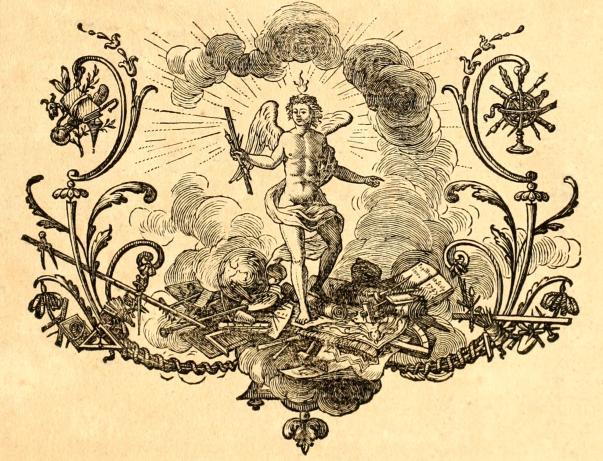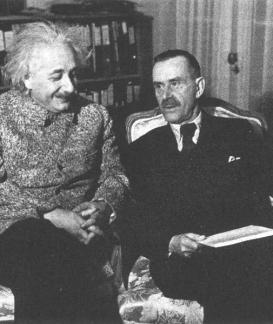Of special interest for the understanding of the relation between science, philosophy of science, and the history of science is the period of scientific philosophy, extending approximately from the late nineteenth century to the 1930s. This period is characterized by the fruitful interaction of the revolutionary transformations of physics with philosophical perspectives on science, but also with developments in experimental psychology and biology. In the course of this development, radically different perspectives on science emerged, amounting to what one might call “a split of scientific rationality” which shapes the debate to this day. In this context, the project specifically investigates the conflicts between the history, philosophy, and sociology of science as a result of this split of rationality, but also their integration into the concepts and methods of a historical epistemology.

Signet at the title page of the Encyclopédie ed. by Diderot and D'Alembert, Paris 1751; Wikipedia Commons.
Historical epistemology deals with the historical clarification of scientific categories and practices as well as with the philosophical inquiry of science in history. At the same time, the category of the political is indispensable for the understanding of the historico-epistemological dynamics of knowledge. The reflections of the political thinker Antonio Gramsci (1891–1937) are particularly relevant to these issues, notably his category of “cultural hegemony,” which introduces the dimension of intentionally directed collective action and political struggle into the realm of the history and philosophy of science (Pietro Omodeo). In his “Prison Notebooks” of the 1920s and 1930s, he provided scholars with an effective conceptual arsenal to critically grasp new interactions between science and society. In recent times, sociologists, historians, and cultural theorists have decisively interiorized Gramscian concepts as an effective means of analyzing societal and cultural dynamics. But key notions such as “cultural hegemony” and the role of the “intellectuals” (scientists, experts, popularizers, educators, decision-makers) in “civil society,” when raised within the context of historiography of science, may help to articulate new approaches for understanding the relation between science and society within a larger, historical dimension. A book project (Pietro Omodeo, together with Massimilano Badino) aims at examining and assessing how science has always been informed by values stemming from political and cultural agendas. This presents an opportunity to fully emphasize the manner in which science mirrored power relations in the past and present through its practices, conceptions, justifications, institutions, cultural authority, patterns of circulation, and technocratic policies.
A parallel study focuses on the work of the historian of art and philosopher Edgar Wind (1900–1971). Wind’s work shows points of contact between historical and scientific methodologies and investigates the presupposition role played by such concepts as “nature” or “symbolism” in cultural research. Here the destruction of the “scientific philosophy” in Germany forms a crucial context. From the epistemological perspective, Wind’s concepts of disturbance and their interrelation is emphasized (Sascha Freyberg). In particular, Wind is presented as a pragmatist who continued the approach of the German philosopher Ernst Cassirer (1874–1945).
The project also evaluates the reception and influence of Cassirer’s work on the development of historical epistemology in the twentieth century, taking into consideration only Western science and thought, but also work done in the Soviet human sciences, especially in the so-called Cultural Historical School and Activity Theory of Psychology. Far reaching parallels between (Cassirer’s) Philosophy of Symbolic Forms and historical-materialist approaches could be revealed, as could the historical relations between German philosophy and psychology, and the Soviet human and social sciences. Here, too, this reception and continuity could be seen as partly bridging the rupture of “scientific philosophy” due to Nazism, World War II, and the Cold War (Sascha Freyberg).
The period of scientific philosophy had far reaching influence not only on thinkers and scientists of the time, but also on the institutionalization of the history and philosophy of science as an academic discipline during the second half of the twentieth century, exemplified by the work of Yehuda Elkana (1934–2012). Elkana’s work is important for its own sake, especially considering Elkana’s role in the establishment of the discipline in the late twentieth century (including the founding of the MPIWG). At the same time, Elkana’s own way of handling the relation between the philosophy and the history of science can be considered also from the perspective of the “split of scientific rationality,” and Elkana’s very specific way of dealing with this split (Ohad Parnes, Sascha Freyberg). In the 1980s, Elkana began a never to be completed book project on Cassirer’s political epistemology, relating it to his own concepts of "images of knowledge" and "two-tier thinking" and in particular to a program that he titled “Rethinking the Enlightenment.”

Yehuda Elkana.
The project is based on a careful analysis of the extensive collection of unpublished manuscripts and notes left by Elkana. As the project revealed, Elkana planned a joint publication with the philosopher and Cassirer expert John Michael Krois (1943–2010). Consequently, access to the joint manuscripts kept in Krois’ Nachlass could be obtained. As the analysis of the manuscripts shows, Elkana and Krois both argued that Cassirer’s cultural-symbolic perspective on the Enlightenment supports their view on the Enlightenment and they read Cassirer as a thoroughly political thinker whose works are implicit reactions to concrete historical-political events of his time, such as the rise of Nazism in Germany in the 1930s. Cassirer’s understanding of terms like knowledge, knowledge production, or science, which relate epistemological to political implications, corresponds with Elkana’s and Krois’ reading of the Enlightenment as an ongoing project. In their manuscripts, they show that a perspective relating the systematic historical and the concrete political level to each other is legitimate and coherent as it presents Cassirer’s implicit political assumptions more explicitly.
The project is composed of two parts: the digitization and archiving of the manuscripts and the systematic scientific disclosure of the material produced by Elkana, but also by Krois. At the center of the project is the preparation of a publication, entailing a compilation of texts that present Elkana’s main arguments and thoughts. An additional contextualization of and commentary on the material will attempt a reconstruction of Elkana’s and Krois’ way of collaboration, but also focus on the thematic aspect of Cassirer’s thinking and how it can help to understand the systematic and political aspects of the evolution of knowledge.

